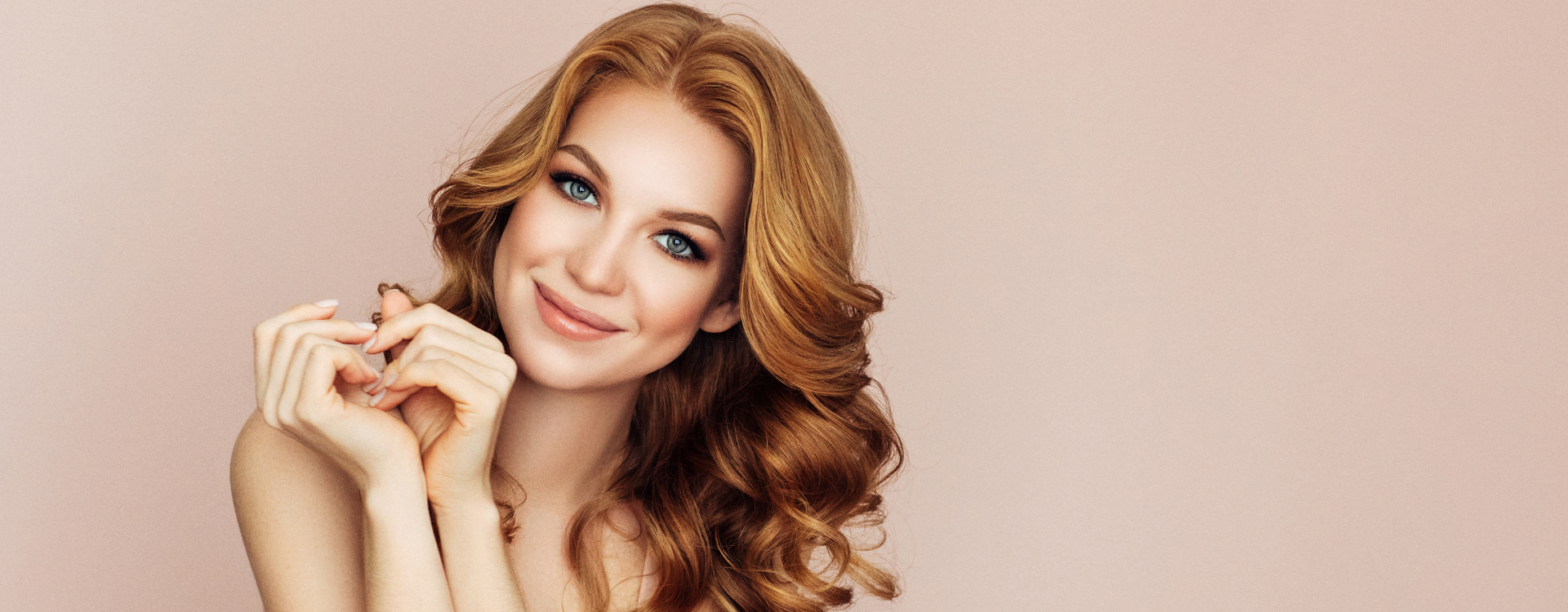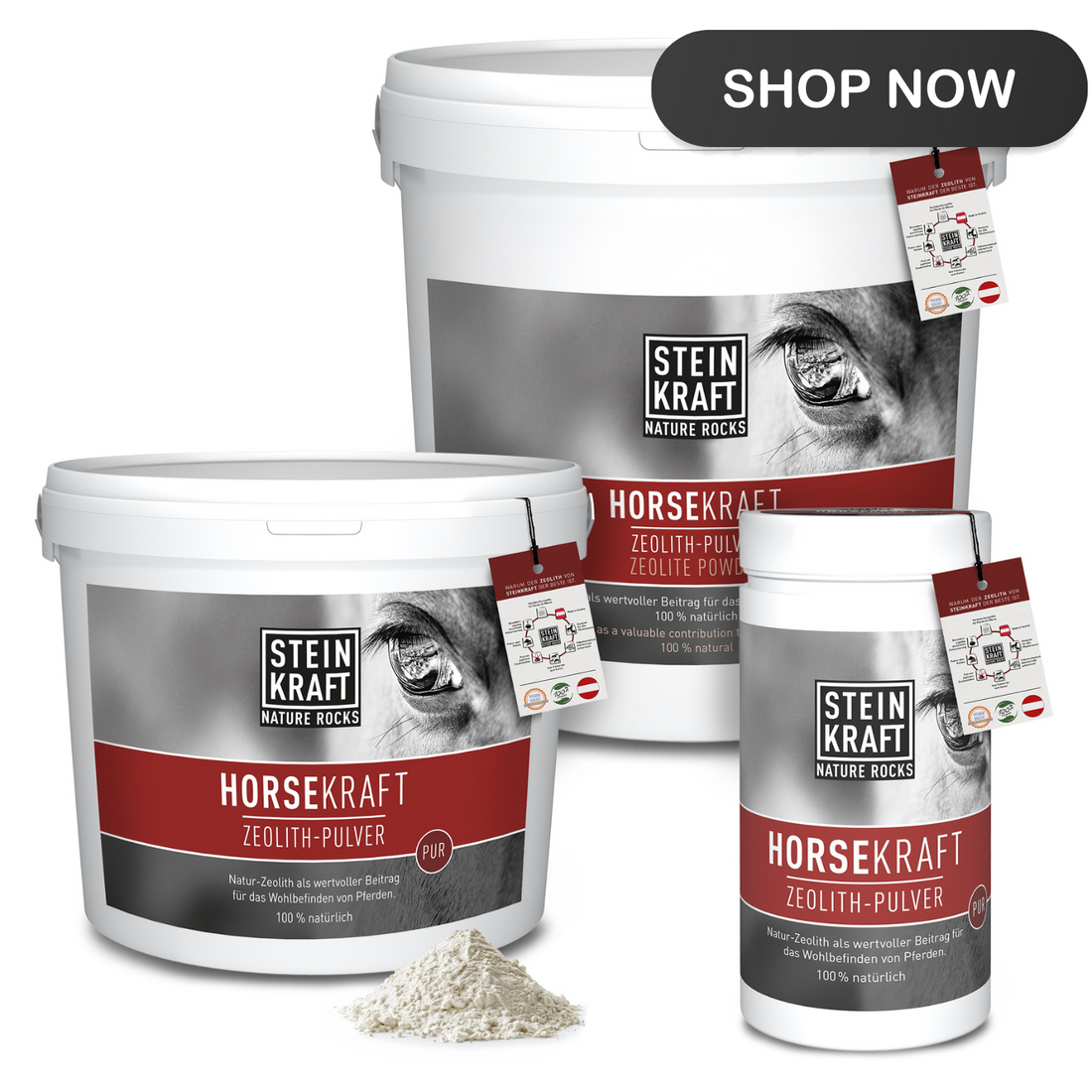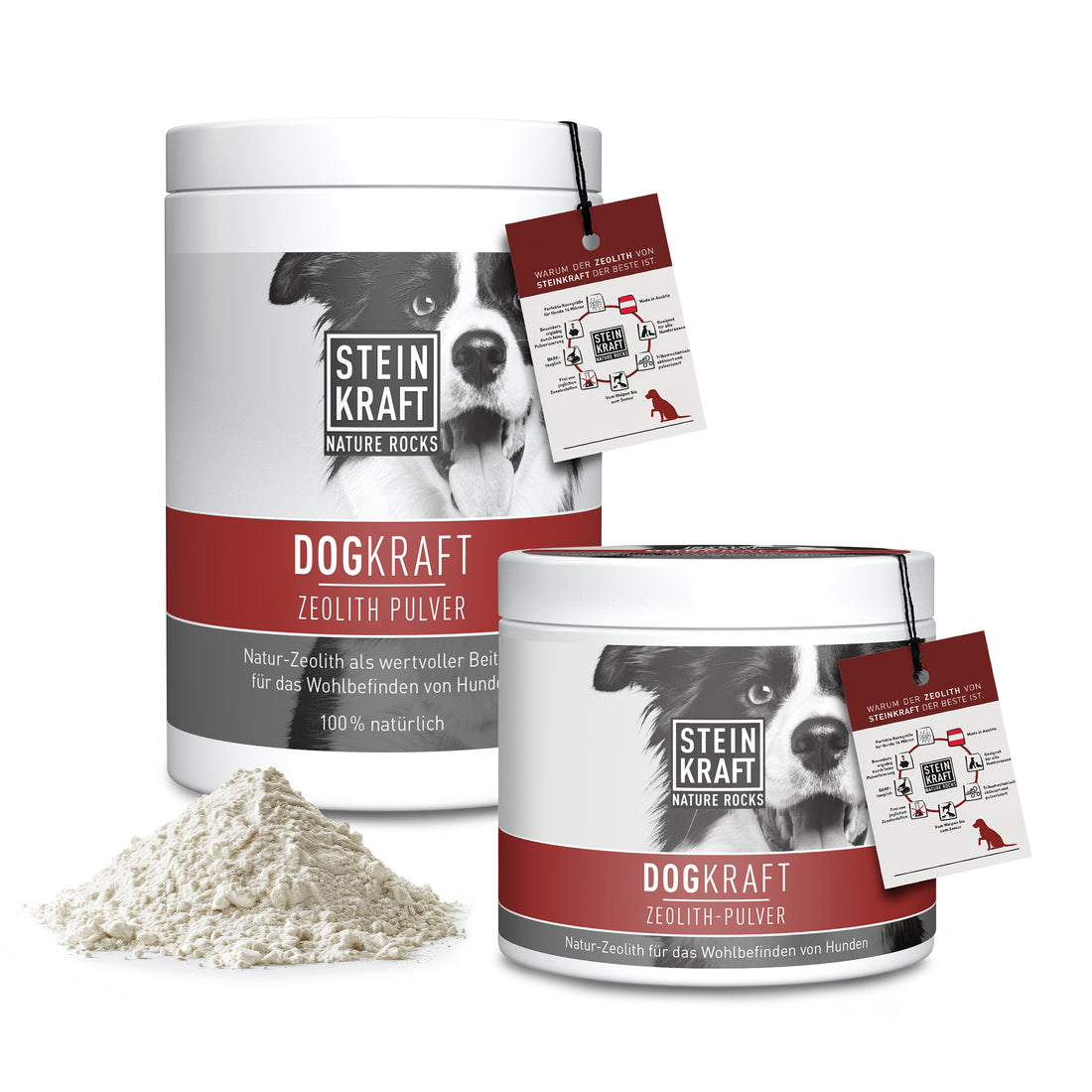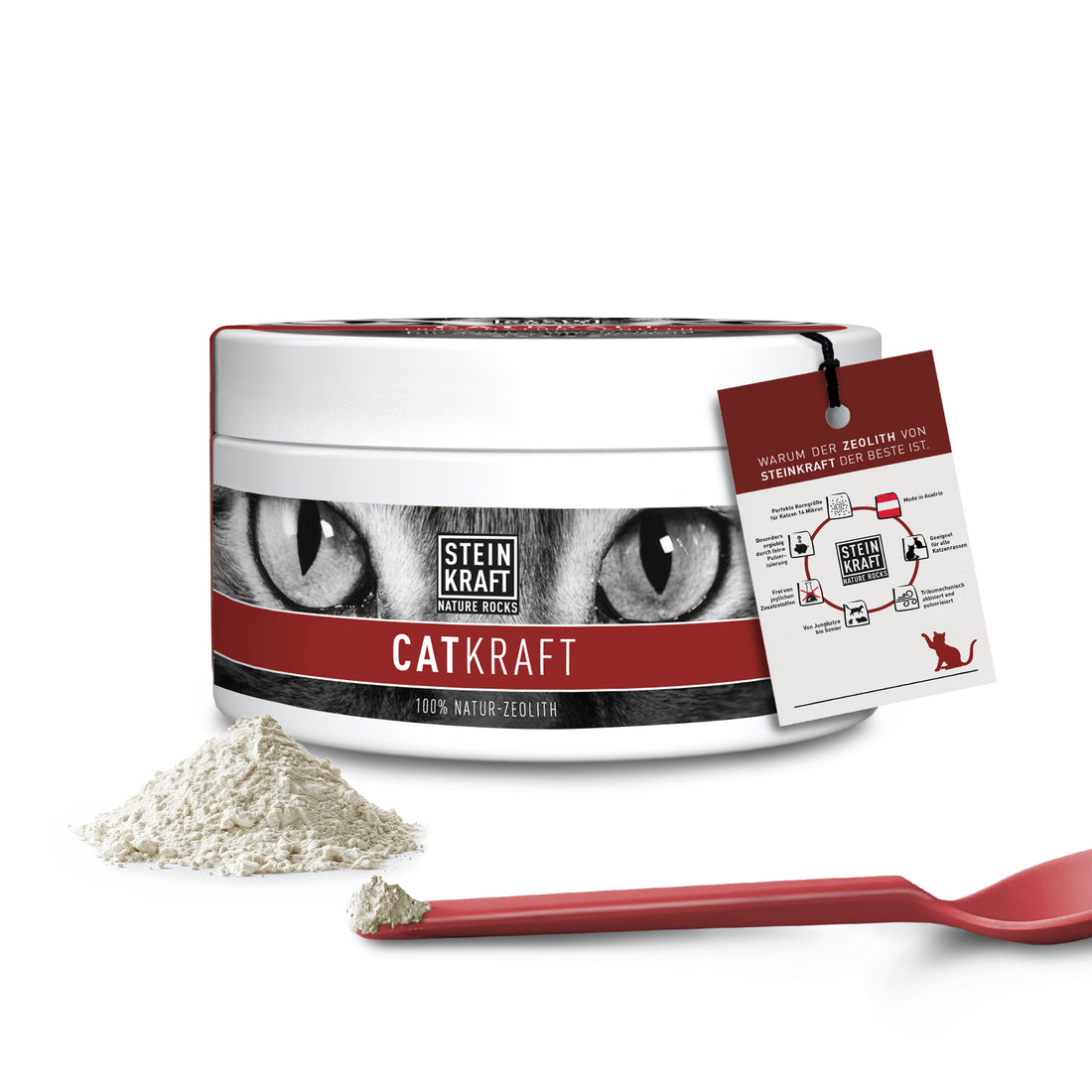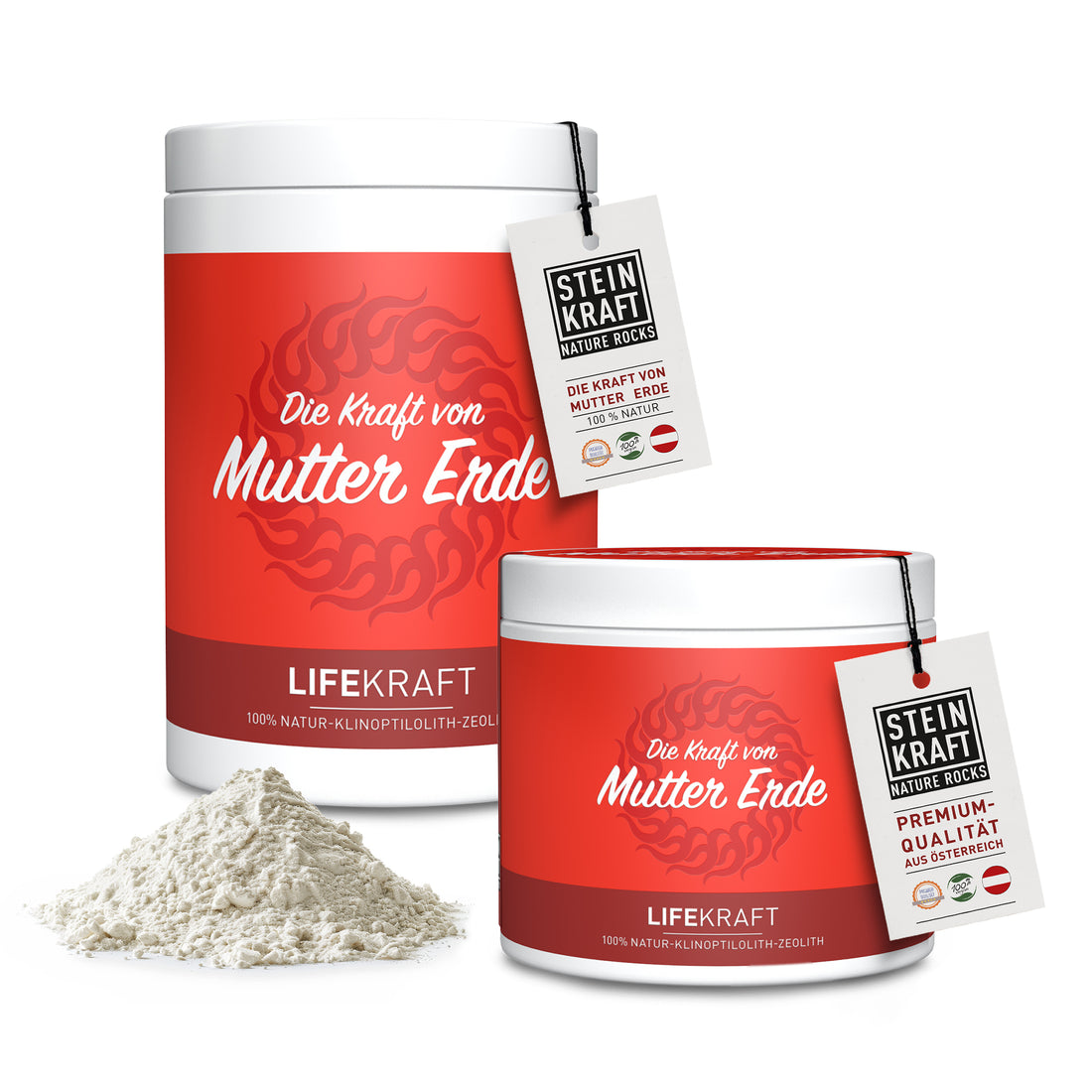Healthy hair in every season: beauty from the inside out.
Healthy, shiny hair is not only a sign of beauty, but also of good health. In this article, we delve deep into the world of hair care, offering specific tips for different hair types, introducing natural recipes, discussing the right diet for healthy hair, and explaining the importance of scalp detoxification. Special attention is given to the use of zeolite and healing clay, as well as other natural remedies.
The basics of healthy hair
Nutrition for healthy hair
A balanced diet is key to strong and healthy hair. Certain nutrients, such as protein, omega-3 fatty acids, iron, zinc, vitamin A, B vitamins (especially biotin), and vitamin E, are essential for hair growth and health. Foods like fish, nuts, seeds, legumes, leafy green vegetables, and whole grains should be a regular part of your diet.
In our blog article "11 Power Anti-Aging Foods" you will find many good and healthy foods for beauty from within and recipes using them.
Importance of scalp detox
Scalp detoxification is crucial for healthy hair growth. Product buildup, sweat, and environmental pollution can clog pores and inhibit hair growth. Natural remedies like zeolite and healing clay are excellent for cleansing and revitalizing the scalp.
Hair care for different hair types
1. Dry hair
• Moisturizing masks: A mask made of avocado, honey, and olive oil, applied once a week, can work wonders. Mix the ingredients in a bowl and apply it to the lengths and ends of your hair, leave it on for a few minutes or even hours under a shower cap, and then wash your hair thoroughly.
• Gentle cleansing: Avoid frequent washing and shampoos with harsh surfactants. Take a look at your shampoo bottle. Conventional shampoos most commonly contain the surfactants sodium laureth sulfate, sodium lauryl sulfate, or sodium coco sulfate. While all three are deep cleansers, they are also very harsh, and particularly dry, sensitive scalps can react with irritation. We sincerely hope the industry will soon rethink its approach, as gentler surfactants do exist, such as sodium cocoyl isethionate (SCI) or coco glucoside.
2. Oily hair
• Regulating rinses: A rinse made of apple cider vinegar and water helps to balance the pH of the scalp, tightens the pores of the scalp, has an antibacterial effect and even adds extra shine to the hair, as it not only closes the cuticle layer but also works against limescale deposits on the cuticle layer of the hair in hard water, thus removing the dullness caused by limescale.
• Clay masks: Clay absorbs excess oil and cleanses the pores. Applied as a mask once or twice a week, it can help degrease the scalp. You can find great mask recipes, including some for hair, in our blog post "Beautiful with Zeolite – 12 Uses of Zeolite for Skin and Hair and 5 Recipes for Masks with Zeolite and Clay."
• Fatty soaps: A stark contrast is the tip some swear by, though it's not statistically proven: fighting oil with oil. There are hair soaps with a high fat content that supposedly make the scalp oily. This is meant to encourage the scalp to regulate its own oil production, reducing the frequency of washing. However, you'll need a lot of patience and a high tolerance for discomfort in the first few weeks, as a greasy look is practically guaranteed. The reward, however, is that your hair only needs to be washed once a week and, instead of looking greasy, will be light, airy, and beautifully shiny. So, feel free to give it a try if you don't have to be around people (much) for the next few weeks!
3. Normal hair
• Balanced care: Regular care with natural oils like coconut or argan oil keeps hair healthy. However, be careful not to use too much oil, as this can make your hair look greasy. One or two drops rubbed between your palms and smoothed over the lengths and/or ends of your hair is perfectly sufficient. Avoid the scalp!
• Gentle styling: Avoid excessive heat and chemical treatments. Often, setting your hairdryer to the medium or coolest setting is sufficient, unless you have very thick hair. Use heat protectant sprays as well; these not only smooth the hair and add condition and shine, but also protect it from damage caused by excessive heat.
4. Curly hair
• Intensive moisture: Curly hair needs different care than straight hair. It benefits from deep moisturizing treatments, such as masks with shea butter and aloe vera. There's also the so-called "Curly Girl Method" (just Google it!), which helps transform limp, tired, tangled, unruly, or barely visible curls into beautiful, shiny, and well-groomed corkscrew curls.
• Gentle detangling: Use a wide-tooth comb and detangle your hair while it's wet. Using oils is also recommended here. This not only defines the curls but also leaves often very dry, beautifully soft and manageable.
Surfactants in hair cleansing: A crucial factor for healthy hair
When choosing the right hair care products, it's important to understand the type of surfactants used. Surfactants are the cleansing agents in shampoos that remove dirt and oils from the hair. However, they can vary in strength and therefore have different effects on the hair and scalp.
Aggressive surfactants
Harsh surfactants are known for their effective cleansing properties, but they can also dry out the scalp and strip the hair of its natural oils. This can lead to dryness, irritation, and even hair damage. Common harsh surfactants include:
1. Sodium Lauryl Sulfate (SLS): A strong surfactant often used in detergents and known for its foaming properties.
2. Sodium Laureth Sulfate (SLES): Similar to SLS, but somewhat milder. However, it can still cause irritation in sensitive scalps. This is the most commonly used surfactant in conventional shampoos. Check your shampoo bottle.
3. Ammonium Lauryl Sulfate (ALS): An alternative to SLS and SLES, but still relatively strong and potentially irritating.
Controversial and moderately aggressive surfactants
These moderately aggressive surfactants are somewhat milder than the aggressive surfactants, but by no means mild and can therefore lead to reactions such as dryness or itching, especially in sensitive scalps.
1. Sodium Coco Sulfate (SCS): A surfactant that is very commonly used, especially in natural cosmetics. Unfortunately, it is by no means gentle!
2. Sodium Lauryl Sulfoacetate (SLSA): Although it sounds similar to the aggressive SLS, SLSA is a slightly gentler surfactant, but can still cause irritation in sensitive scalps.
3. Cocamidopropyl Betaine: Derived from coconut oil, this surfactant is mild and non-irritating, making it suitable for sensitive scalps.
Gentle surfactants
Gentle surfactants are a better choice for people with sensitive scalps or those prone to dryness and irritation. They cleanse the hair without disrupting its natural oil balance. These surfactants include:
1. Decyl Glucoside: A gentle, biodegradable surfactant derived from plant-based raw materials such as corn and coconut.
2. Lauryl Glucoside: Also a mild surfactant known for its skin-friendly properties.
3. Sodium Cocoyl Isethionate (SCI): This is an excellent choice for those seeking a mild yet effective surfactant. It is derived from coconut oil and is biodegradable. Despite its mildness, it produces good foam.
Why are the right surfactants important for our scalp?
Choosing the right surfactant in your shampoo can make a significant difference to the health of your scalp and hair. People with sensitive scalps or dry hair should opt for products with mild surfactants, while those with normal scalps may tolerate stronger surfactants. Keep in mind that individual tolerance can vary, so feel free to experiment to find the best product for your specific hair needs.
Use of zeolite and healing clay in hair care
Zeolite
• Detoxifying scalp mask: Mix zeolite powder with water to form a paste and apply it to the scalp. After 10-15 minutes, rinse thoroughly with warm water. The water should not be too hot; lukewarm water is always better than hot water.
• Hair rinse: A rinse made from zeolite powder and water helps detoxify the hair and remove residue. You can add a splash of apple cider vinegar to close the hair cuticle and promote extra shine. Don't worry, the typical, and sometimes quite strong, apple cider vinegar smell will disappear after your hair dries.
Healing clay
• Cleansing hair scrub: Healing clay mixed with water and a few drops of essential oil makes an excellent gentle scalp scrub. When choosing an essential oil, make sure it doesn't contain any allergens. Anything made from citrus fruits, for example, can potentially trigger allergic reactions. Lavender, for instance, is mild and calming.
• Deep cleansing shampoo: Healing clay can be mixed into your regular shampoo to increase its cleansing power. It acts like a sponge or magnet for dirt and carries it away when rinsed.
Natural hair care recipes
1. Nourishing hair mask
• Ingredients: 1 ripe banana, 2 tablespoons olive oil, 1 tablespoon honey
• Application: Mix the ingredients into a smooth paste, apply to the hair, leave on for 20 minutes and then rinse thoroughly.
• Effects: Bananas are rich in potassium, vitamins A, E, and C, as well as zinc and iron, carbohydrates, and natural oils known for their moisturizing properties. They help to hydrate the hair, leaving it soft and manageable. Bananas can also help smooth the hair surface and reduce frizz, making hair more manageable overall. Olive oil is rich in antioxidants and healthy fatty acids, especially oleic acid. It penetrates deep into the hair shaft, providing intense hydration. Applying olive oil to the scalp can improve blood circulation and potentially stimulate hair growth. Honey is a natural humectant, meaning it attracts and retains moisture in the hair. This helps to keep hair moisturized for longer. Honey has antioxidant properties that can help maintain a healthy scalp and prevent damage from free radicals.
2. Strengthening hair oil
• Ingredients: 50 ml coconut oil, 10 drops rosemary oil
• Application: Mix the oils and massage the mixture into your scalp before going to bed. Leave it on overnight and rinse it out the next morning.
• Effects: Coconut oil is known for its excellent moisturizing properties. It penetrates deep into the hair shaft, hydrating the hair from within, which is especially beneficial for dry and damaged hair. Coconut oil has antimicrobial properties that can contribute to scalp health by helping to combat problems such as dandruff and fungal infections. Rosemary oil is often associated with promoting hair growth. Studies have shown that with regular use, it can help increase hair density. Rosemary oil has antimicrobial and anti-inflammatory properties that can help combat dandruff and other scalp problems. It can also help strengthen the hair structure and reduce hair loss.
Tips for daily hair care
• Gentle brushing: Use a natural bristle brush to gently detangle the hair and distribute the natural oils.
• Head massage: Regular head massages promote blood circulation and support hair growth. Using rosemary and/or basil oil, for example, can even further stimulate hair growth.
• Protection: Wear a hat or scarf to protect your hair from the cold and sun.
• Stress reduction: Stress can cause hair loss. Try reducing stress through yoga, meditation, or other relaxing activities.
Healthy hair is the result of a combination of proper care, good nutrition, and the use of natural products. By addressing the needs of your hair type, regularly detoxifying your scalp , and using natural ingredients like zeolite and healing clay, you can nourish and strengthen your hair. Remember that care from within is just as important as care from the outside. A holistic approach is the key to beautiful, healthy hair.
We believe in materialized energy in concentrated form within the zeolite volcanic mineral. Fire, earth, water, air: everything that nature has created supports us in unfolding our full potential.
Zeolite carries within it the knowledge of primal nature about the process of renewal. Happy Renewal!
👉 Here you'll find the product of the month and a good overview of all STEINKRAFT product lines.
👉 Here you can find all STEINKRAFT products at a glance - directly in the shop


